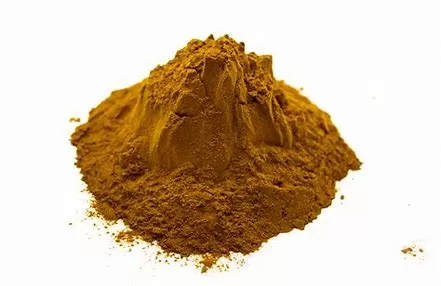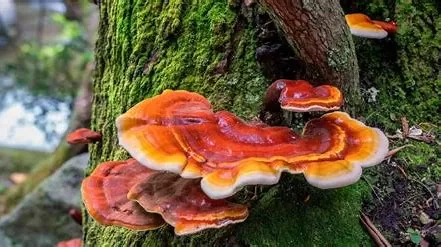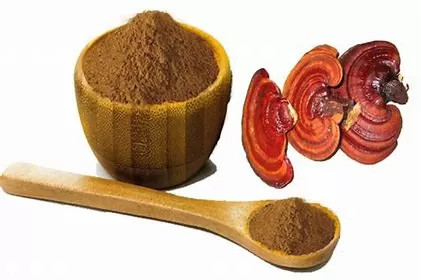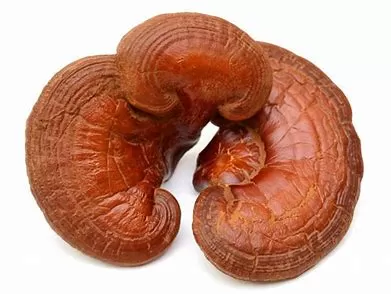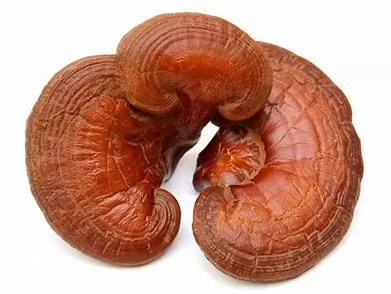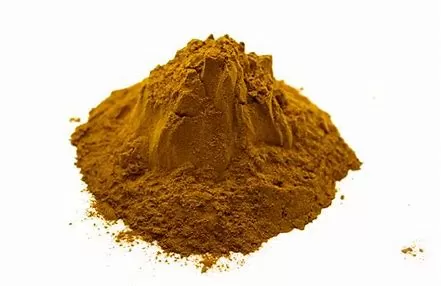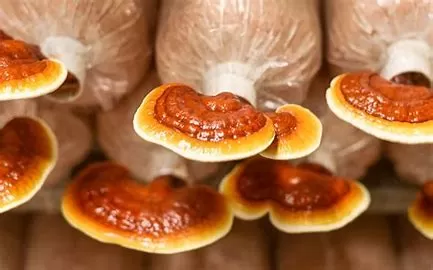- 0086-571-85302990
- sales@greenskybio.com
Downsides of Reishi: A Comprehensive Analysis
2025-04-02
Reishi, also known as Ganoderma lucidum or Lingzhi, is a mushroom with a long-standing reputation in traditional Chinese medicine, celebrated for its purported health benefits such as boosting the immune system, reducing stress, and enhancing longevity. Revered as the "Mushroom of Immortality," its use has transitioned from ancient herbal practice to modern nutraceutical applications. However, while Reishi has gained popularity for these potential benefits, it is imperative to acknowledge and understand the downsides and potential risks associated with its consumption.
Understanding Reishi's Composition
Reishi mushrooms are known to contain a variety of bioactive compounds, including polysaccharides, triterpenoids, and peptidoglycans. These compounds contribute to its wide-ranging health effects. Polysaccharides are believed to support immune function, while triterpenoids may have anti-inflammatory and antioxidant properties. However, the complexity of these compounds also underscores the importance of consuming Reishi with caution, as they can cause adverse effects in certain individuals.
Potential Downsides of Reishi Consumption
1. Gastrointestinal Disturbances
One of the most frequently reported downsides of Reishi consumption is gastrointestinal discomfort. Some individuals may experience symptoms such as nausea, upset stomach, diarrhea, or constipation. These symptoms are often more pronounced with high doses or prolonged use of Reishi supplements. The digestive system may not readily tolerate some of the mushroom's complex compounds, leading to these discomforts.
2. Allergic Reactions
Although rare, Reishi can provoke allergic reactions in certain individuals. Symptoms can range from mild, such as skin rashes and itching, to more severe reactions like difficulty breathing or throat swelling, which require immediate medical attention. It is advisable for individuals with known mushroom allergies or sensitivities to consult with a healthcare professional before consuming Reishi.
3. Interaction with Medications
Reishi's bioactive compounds might interact negatively with certain medications, posing a risk to individuals under pharmaceutical treatment. Reishi has anticoagulant properties, which may amplify the effects of blood-thinning medications such as warfarin and increase the risk of bleeding. Moreover, it could interfere with immunosuppressants and certain chemotherapeutic agents. Consulting a healthcare provider before starting Reishi supplements is crucial for those on medication regimens.
4. Liver Toxicity
While Reishi is often lauded for its health-promoting properties, there are reports linking its consumption with hepatotoxicity, or liver damage. These cases are rare but highlight the risk associated with excessive or prolonged intake of Reishi, particularly when used in high doses. Symptoms of potential liver toxicity include jaundice, fatigue, and elevated liver enzymes. Monitoring liver function and adhering to recommended dosages is essential when using Reishi supplements.
5. Blood Pressure Effects
Reishi may influence blood pressure, as some studies suggest it could have a hypotensive effect, meaning it might lower blood pressure. While this could benefit those with hypertension, individuals with naturally low blood pressure or those on antihypertensive medications need to exercise caution. The compounded effect could lead to hypotension, resulting in symptoms such as dizziness, lightheadedness, or fainting.
6. Teratogenic Concerns and Pregnancy
There is limited research on the safety of Reishi consumption during pregnancy and breastfeeding. Due to potential effects on the immune system and blood pressure, pregnant or nursing women should avoid Reishi or consult their healthcare provider to assess the risks and benefits. The potential teratogenic effects, though not well-documented, should be considered, necessitating cautious approach during these critical periods.
Considerations for Safe Reishi Use
To mitigate the risks associated with Reishi consumption, it is vital to follow guidelines predicated on scientific research and healthcare advice. Here are several practical tips:
- Dosage Adherence: Start with small doses to assess tolerance, and do not exceed the recommended dosage as stipulated by reputable sources or healthcare professionals. This is particularly important to minimize gastrointestinal issues and potential liver toxicity.
- Product Quality: Choose Reishi supplements from reputable brands with rigorous quality controls. Look for products that have been independently tested for purity and potency to avoid contaminants that can exacerbate side effects.
- Medical Consultation: Engage with healthcare professionals, particularly if you have pre-existing conditions or are taking medication. Their expertise can guide you in determining whether Reishi is appropriate for your health regimen.
- Monitoring and Awareness: Be conscious of any physical changes or symptoms following the intake of Reishi. If adverse reactions occur, discontinue use and seek medical advice promptly.
Conclusion
While Reishi mushroom harbors a wealth of potential health benefits, its downsides necessitate a conscientious approach to its consumption. From mild gastrointestinal discomfort to serious interactions with medications, understanding these risks is crucial in making informed decisions about incorporating Reishi into one’s wellness strategy. Always prioritize safe use, seek professional healthcare advice, and remain informed about both the benefits and risks associated with Reishi. In this way, individuals can harness the positive aspects of this famed "Mushroom of Immortality" while minimizing adverse effects.
- ▶ Hesperidin
- ▶ citrus bioflavonoids
- ▶ plant extract
- ▶ lycopene
- ▶ Diosmin
- ▶ Grape seed extract
- ▶ Sea buckthorn Juice Powder
- ▶ Beetroot powder
- ▶ Hops Extract
- ▶ Artichoke Extract
- ▶ Reishi mushroom extract
- ▶ Astaxanthin
- ▶ Green Tea Extract
- ▶ Curcumin Extract
- ▶ Horse Chestnut Extract
- ▶ Other Problems
- ▶ Boswellia Serrata Extract
- ▶ Resveratrol Extract
- ▶ Marigold Extract
- ▶ Grape Leaf Extract
- ▶ blog3
- ▶ blog4
- ▶ blog5
-
Does reishi balance hormones?
2025-04-02
-
Daily Use of Reishi: Safety and Benefits
2025-04-02
-
Does Reishi Mushroom Make You Look Younger?
2025-04-02
-
Does Reishi Mushroom Extract Help You Sleep?
2025-04-02
-
What is Reishi Mushroom Extract Used For?
2025-04-02
-
Acai Berry Extract
2025-04-02
-
Shikone Extract
2025-04-02
-
Gynostemma pentaphyllum extract
2025-04-02
-
Kupilu Extract
2025-04-02
-
Dan Shen Root Extract/Salvia Root Extract
2025-04-02
-
Selenium yeast
2025-04-02
-
Garcinia Cambogia Extract
2025-04-02
-
Panax Ginseng Leaf Extract
2025-04-02
-
Bamboo Leaf extract
2025-04-02
-
Resveratrol extract
2025-04-02











